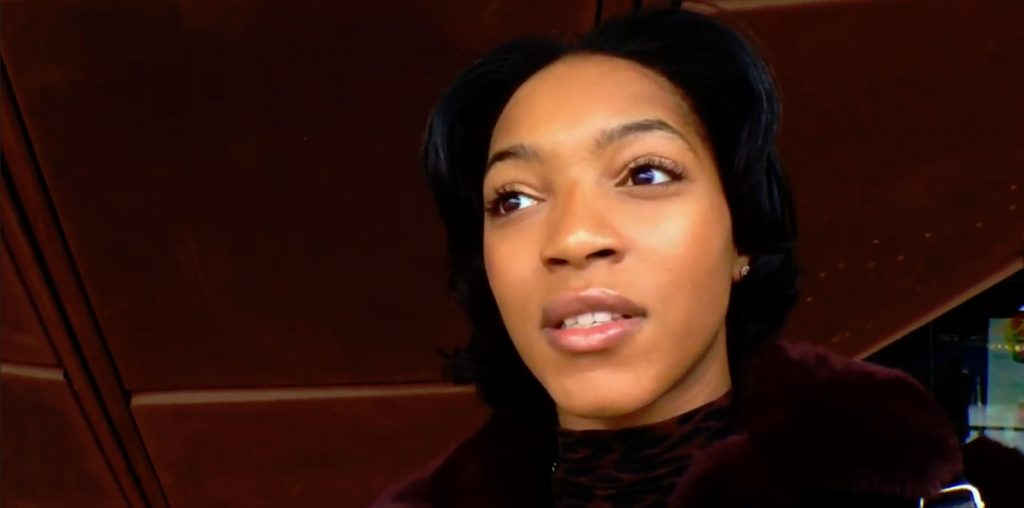
Murder is a family affair. So, it would seem, is deceit, scandal, corruption, and political ambition. No, this isn’t the Clintons, or the Bushes for that matter. It is the Charpins and the Vasseurs, two of France’s richest houses, linked through generations of convenient intermarriage. They are but the latest in a long line of fine bourgeois families to be skewered by France’s reigning “Master of Suspense”, Claude Chabrol, in this, his 50th (!) film. That’s right, that old war horse, one of the instigators of the Novelle Vague and director of such films as “Le Boucher” and “Les Bonnes Femmes”, has cranked out his 50th. Andrew Sarris once contended that Chabrol was not above phoning-it-in when he wasn’t quite feeling a film. Well, I am by no means an expert on France’s answer to Sir Alfred, but I will gladly argue that “The Flower of Evil” is a solid effort in any director’s oeuvre. And it’s also not at all bad for a man of 74.
Sentiment aside, “The Flower of Evil” is a fine film, which, like the family it exposes, is not quite what it initially seems. Those expecting the thrilling suspenser promised by the trailer, and hinted at in the film’s first few minutes, might be disappointed by a marked lack of thrills or suspense. Chabrol’s affinity for Hitchcock is no secret, but here he clearly has very little interest in making you squirm. Attacking the ideals of the festering upper crust is more pressing than silly old matters of whodunit. In apparent Chabrol fashion however, “The Flower of Evil” shies away somewhat from hitting its desired themes head on, instead opting to buffer itself in the familiar genre of “thriller”, one that surely ill-suits it. The first thing that clues us in is the music, that music! We almost know what we’ll see waiting for us in the film’s opening scene, when the camera finally finishes its long, slow trek up a spiral staircase in a big country estate. We can almost taste it… that metallic sweetness of fresh blood. A murder has taken place. Chabrol wants to play host.
As hosts go, Chabrol is a fairly good one. He is never rude and gracefully takes his time in introducing us to his old friends, the Vasseurs and the Charpins. (If he has anything remotely ill-mannered to say about them, he prudently tells us when their heads are turned.) At the head family, at least in the traditional sense, is Gerard Vasseur (Bernard Le Coq), a local pharmaceutical baron and probable adulterer. He is the father of Francois (Benoit Magimel), a vigorous twenty-something, newly returned from a four-year stint in America. Having lost his first wife (and mother of Francois) in a car accident, Gerard is now married to Anne Charpin-Vasseur (Nathalie Baye), an attractive “older” woman with her eye on local politics. Michele (Melanie Doutey) is Anne’s biological daughter and a rival for Audrey Toutou’s arresting, Gallic sensuality. Rounding out the bunch is sweet old Aunt Line (Suzanne Flon), the family matriarch and link to the dark secrets of its past. When an anonymous letter pops up accusing the family of past collaboration with the Nazis, murder, profiteering, incest, and corruption, it is old Aunt Line who knows the truth. It is also Aunt Line who seems the most encouraging of the barely suppressed relationship between Francois and Michele, who are technically only step-siblings (though when you consider the six generations of intermarriages, it’s still kind of icky). You see, Aunt Line understands that the key to this family’s survival seems to be in history repeating itself, over and over again, even if it means incest, or murder.
The biggest mystery in “The Flower of Evil” is surprisingly, not who is killed (that’d be Gerard) or whodunit (well, that one’s a small mystery, so I won’t reveal here) or even why (my lips are sealed). No, those things merely let Chabrol employ the playful and perfunctory touches and structure of your standard thriller. The biggest mystery, at least in a literal sense, is the author of the venomous letter. All signs lead to Gerard, who may have been trying to put a kink in his wife’s political bid. Gerard detests politics and has particular dislike for Anne’s trusty advisor Matthieu (Thomas Chabrol), so it seems reasonable. But the maturity that apparently comes with 50 films keeps Chabrol marvelously restrained enough so that there are no obvious answers. Sure, Gerard’s a slimy, lecherous creep and might be sleeping around. Yet in Chabrol’s critique of the privileged, where the sins of the past beget the sins of the present and sustain the cycle, Gerard is simply playing his role, like all the others.
